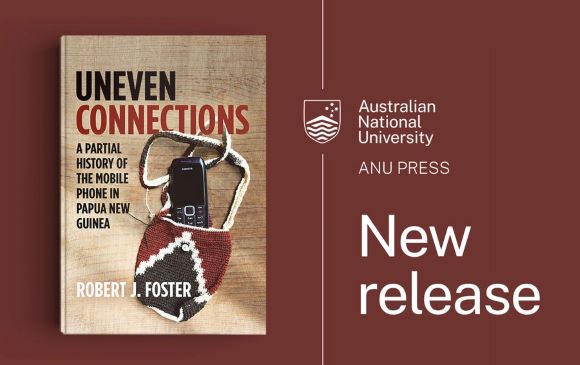SAS In Focus is the only newsletter devoted to reporting everything that’s happening in the School of Arts & Sciences. In this edition . . .
- Psychology Department Chair Jeremy Jamieson talks to New York Magazine’s The Cut about generational phone anxiety. Did he speak by phone?
- Before Elvis, before The Beatles, before insert-boy-band-here, there was Franz Liszt.
- The Office of Equity and Inclusion invites you to learn how to counter Islamophobia.
And more . . .
——————————————————————————————————-
FACULTY IN THE NEWS
Jamieson makes The Cut

When it comes to communicating by phone, there are two types of people in this world: talkers and texters.
The Cut, the fashion and lifestyle arm of New York Magazine, turned to Psychology Professor and Department Chair Jeremy Jamieson for insight on generational “phone anxiety.”
“People worry, ‘Am I going to bother this person? Am I going to be a nuisance?’” Jamieson was quoted as saying.
In that mindset, The Cut opined, it’s easy to view making a phone call as a demand that one party might fulfill only grudgingly.
——————————————————————————————————-
BOOK NOOK
Lisztomania

Long before Elvis, long before The Beatles, long before insert-boy-band-here, there was Franz Liszt, a 19th-century Hungarian composer whose sex appeal and flamboyant piano performances induced a level of hysteria among his legions of fans that came to be called “Lisztomania.”
Now, Liszt and Virtuosity, a book of essays about his exploits published by the University of Rochester Press and edited by Robert Doran, professor of French and comparative literature and an affiliate faculty in music theory at the Eastman School of Music, has won an Alan Walker Book Award.
The award, sponsored by the American Liszt Society, is bestowed every three years for a new book that contributes to Liszt scholarship.
‘Can You Hear Me Now?’

In the early years of the century, government regulators, corporate executives, and everyday people in Papua New Guinea imagined that opening mobile phone markets to competition would lead to greater access to phones and lower costs.
It has not worked out that way, according to a new book by Robert Foster, professor of anthropology and visual and cultural studies.
Uneven Connections: A Partial History of the Mobile Phone in Papua New Guinea, published by Australian National University Press, tells the story of a so-called digital revolution that confounded the expectations of policy makers and ordinary citizens alike.
The book is available for free downloads.
——————————————————————————————————-
TEACHING TOOLS
Experience Blackboard Learn Ultra
Changes to Blackboard Learn are afoot, and the Teaching Center is planning a migration to the new Blackboard Learn Ultra Course View for the School of Arts & Sciences and other areas of the University in January 2025.
The Teaching Center has heard from many instructors who are interested in transitioning their courses to the new format over the summer and are opting to participate in a Fall 2024 pilot program.
Faculty interested in opting into the pilot should complete this registration form. The Teaching Center reports that it expects to be able to accommodate as many as six courses per instructor and to have the shells for courses created by late June.
——————————————————————————————————-
ON THE HORIZON
April 2: ‘The Ideology, Myths and Rituals of the Russian Deep State’
Dmitry Bykov, a Russian writer, poet, literary critic, and journalist, discusses the ideology of Chekism, a term related to the ubiquity of the secret police in Russian society.
The event takes place at 5 p.m. in the Hawkins-Carlson Room of the Rush Rhees Library.
Bykov, the Humanities Center’s inaugural Scholar in Exile sets out to answer questions like, “How has the secret police survived so many regime changes?” and “What are its rituals and occult practices?”
The evening opens with remarks from President Sarah Mangelsdorf, School of Arts & Sciences Dean Nicole Sampson, and Humanities Center Director Peter Christensen.
April 3-30: Countering Islamophobia
The Council on American-Islamic Relations recently reported a huge spike in bias incidents and requests for help from Muslims living in the United States.
The Office of Equity and Inclusion has partnered with Islamic Network Groups, a peace-building organization, to present a series of Zoom sessions designed to help the University community learn how to recognize and counter Islamophobia.
Four sessions are planned, and each runs from 12-1 p.m. on their respective dates. Click on the links to register.
April 3: Historical and Contemporary Roots of Islamophobia
April 24: Transnational Islamophobia and Islamophobia in the United States and How It Is Disseminated
April 26: Impact of Islamophobia on Muslims in schools, the workplace, and other institutions
April 30: Strategies for countering Islamophobia through education and institutional policies
April 19: ‘Confluences’
Prominent figures in Indigenous Studies will gather in the Hawkins-Carlson Room in Rush Rhees Library for a daylong symposium titled “Confluences” celebrating Professor Emerita Janet Catherine Berlo’s distinguished and ongoing accomplishments.
The event coincides with the release of a digital festschrift website. The publication includes six commissioned essays of original scholarship that reflects upon, engages with, or re-examines a component of Berlo’s work.
The event runs from 9 a.m. to 6 p.m.
——————————————————————————————————-
GOT NEWS TO SHARE?
Send your SAS In Focus news tips to SAS Senior Communications Officer David Andreatta at david.andreatta@rochester.edu. Be sure to put “SAS In Focus” in the subject heading, and tell him about research, awards, publications, and symposiums, and whatever other news you think is fit to print.